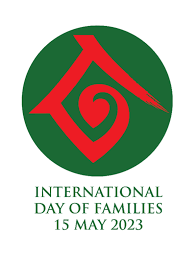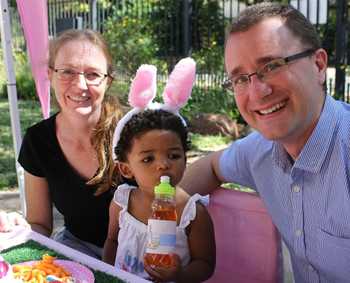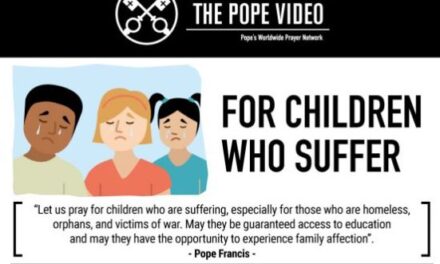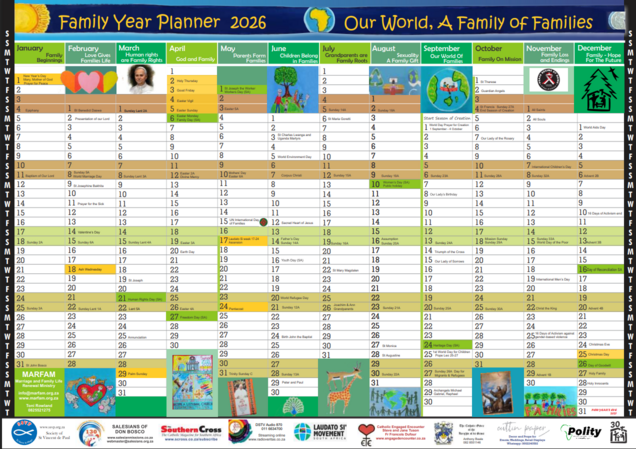
May 17. The unkown god. Bruce, was a counsellor running a parent-teen programme. He told them, “It’s hard to imagine what exactly we worship these days. Some kids addicted to drugs worship that in a way. But a parent too, father or mother can be addicted to work, alcohol, gambling, pornography or the internet. We might not think of those things as unknown gods, but our behaviour speaks otherwise. It would be wonderful if our “unknown gods” were the more positive things, like spending family time adopting an environmental cause.
Reflect, share, act. Scripture. Paul said to the men of Athens, “As I passed along I found an altar with the inscription, ’to an unknown god.’ The God who made the world and everything in it, does not need to live in shrines made by man. Since he himself gives to all men life and breath and everything. Acts 17:15-22. Pope Francis: When media and the digital world become omnipresent their influence can stop people from learning how to live wisely, to think deeply and to love generously. The great sages of the past run the risk of going unheard amid the noise and distractions of an information overload. Efforts need to be made to help these media become sources of new cultural progress for humanity and not a threat to our deepest riches. LS 47. Environmental education should facilitate making the leap towards the transcendent which gives ecological ethics its deepest meaning. LS210 Pray. Mary, Mother of all creation, pray for us.
FAMILY MATTERS WEEKLY E-NEWSLETTER.
Demographic changes impact families.

The UN International Day of Families has been commemorated on 15 May for nearly 20 years and each year it raises very important and relevant issues for consideration and action by governments, NGOs and Faith based organisations too. The 2023 focus is “Demographic change and its impact on families.” Simply put, demographics describes where and how people live. The world population has recently reached 8 billion and will continue to grow, although already for some time, at a slower rate. The UN has chosen fertility and mortality as focus areas. Family structures are changing, the number of children they have, and life expectancy is increasing. That means an aging society in many countries, although African countries are still seen as youthful. Statistics are important to identify the changes, however my concern is mainly with the effect on individual families and family life overall.
Fertility rates are declining i.e. people are having fewer children. The UN and DSD preparatory documents state, “Declining fertility rates result in benefits for families as they are more able to invest in their children’s health and education which in turn helps with poverty reduction and better socio-economic development. Decreasing fertility also increases women’s labour participation. On the other hand, fertility declines result in smaller families which are less likely to cope with care and other household obligations. As such, in time of unemployment or illness, families have fewer members to rely on.
While marriage remains the norm in most of Africa and Asia, and is still often regarded as the optimum way of being, the overall proportion of people getting married is decreasing. This is offset in part by increased cohabitation, with divorce, separation and widowhood on the rise. Higher divorce rates may, in some contexts indicate greater independence of women who can support themselves financially. Divorce and separation, however, also imply greater vulnerability for families. Major changes for families following a divorce, include change in residential arrangements, economic disadvantage, loneliness associated with social network changes, challenges in care arrangements for children. This can in turn lead to adverse effects for parents’ and children’s physical, emotional and financial well-being.
Families are constantly responding to changes in their social systems. COVID-19 has drawn attention to the fact that humans need intimate others for physical and emotional support and that for many individuals, families, however they are defined, are still that source of security and comfort. The crisis also highlighted that family membership can be extremely stressful and even be associated with violence.”

Extended families, common in Africa, can provide a good support system. Lone parent families, consisting of a mother and children are the most common form in our country, and tend to be most vulnerable to poverty and other social ills.
The SA Department of Social Development circulated information and prepared for the commemoration in different places. Presentations were made stressing the importance of functional and healthy families for the good of all their members, young and old. However, overall too little attention was paid to the needs of families per se, the core unit of our society. We are all well aware of the changes, we experience, see and hear about them in our everyday lives but much more real and practical support of all kinds needs to be given.
From an individual and economic perspective these demographic changes can be described as beneficial. However psychologically, emotionally and even spiritually are they really beneficial? Do the changes promote selfish individualism, materialism and a consumerist attitude with less focus on sharing, generosity and the common good. In other words, “are we building better and more loving people, conscious of the world around them and of our Creator and sustainer?
These thoughts are from a limited human perspective but as Pope Francis writes in Laudato Si,’ “everything is connected” We have done so, and continue to abuse the planet, our common home by our lack of responsibility for its future for our children. “Do we hear the cry of the earth and of the poor?”
Demographics should apply to all the elements and members of creation with a true ecological approach. It has recently been stated, that of every ecosystem the human “family” is the only one increasing in numbers, though not necessarily in general wellbeing. We hold the power largely through technology. Other ecosystems, animals and plants, are decreasing at an alarming rate and many species are becoming extinct, often for reasons related to human activity. “Because of us, thousands of species will no longer give glory to God by their very existence.” LS 33.

“While it is true that an unequal distribution of the population and of available resources creates obstacles to development and a sustainable use of the environment, it must be recognised that demographic growth is fully compatible with an integral and shared development. To blame population growth instead of extreme and selective consumerism on the part of some is reusing to face the issues. It is an attempt to legitimize the present model of distribution where a minority believes that it has the right to consume in a way which can never be universalized since the planet could not even contain the waste products of such consumption.
“The human person grows more, matures more and is sanctified more to the extent that he or she enters into relationships, going out from themselves to live in communion with God, with others and with all creatures.” LS240






Recent Comments